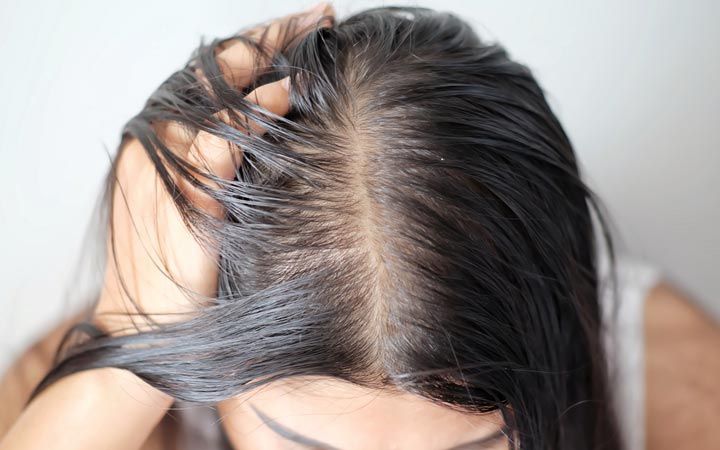Managing greasy hair can be a challenge, but with the right techniques and products, you can regain that fresh, clean look. Greasy hair often results from oil buildup due to overactive sebaceous glands, inadequate washing, or even dietary choices. This article will explore practical ways to keep your hair looking clean and vibrant without stripping away essential moisture.

Understanding Greasy Hair
Greasy hair primarily occurs when the scalp produces excess sebum, a natural oil that protects the hair and scalp. However, when produced in excess, this oil can weigh hair down and make it appear greasy. Various factors contribute to this phenomenon, including genetics, climate, and hair type. Often, individuals with fine or straight hair may notice oil buildup more quickly than those with thicker hair textures. Additionally, frequent touching of the hair and using heavy hair products can exacerbate oiliness. Understanding these factors is the first step toward effective management.

Wash Your Hair Properly
One of the most effective methods to control greasy hair is to wash it correctly. It’s not just about how often you wash, but how you do it that affects oil production. Here are a few tips for washing your hair:
- Use the Right Shampoo: Look for shampoos that are specifically formulated for oily hair. Avoid moisturizing or creamy formulas as they can add additional oils.
- Shampoo More Often: Consider washing your hair daily or every other day to keep oil at bay.
- Focus on the Scalp: Concentrate on massaging shampoo into your scalp to remove oil buildup, while being gentle on the hair ends.
- Rinse Thoroughly: Make sure to rinse out all shampoo and conditioner, as residue can lead to greasiness.
Incorporating these washing techniques can significantly reduce the greasy appearance of your hair, making it appear fresh and clean.

Invest in the Right Hair Products
Choosing the right hair care products is crucial when managing oily hair. Formulating a tailored routine can make all the difference. Here are some product types to consider:
- Clarifying Shampoos: Use these once a week to remove product buildup and excess oil. Be mindful, as they can be drying if used too frequently.
- Dry Shampoo: This lifesaver can absorb oil between washes and provide volume. It’s an excellent tool for those hectic days.
- Lightweight Conditioners: Opt for conditioners labeled as “light” or “oil-free” to avoid adding unnecessary oils to your hair.
By carefully selecting your hair products, you can prevent grease buildup while nourishing your hair appropriately.

Diet and Lifestyle Adjustments
Your diet and lifestyle play a significant role in the health of your hair. Certain foods can increase oil production, while others can help maintain balance. Foods rich in omega-3 fatty acids, like salmon and walnuts, can improve scalp health. Staying hydrated is also crucial, as water helps regulate oil production. Furthermore, reducing the intake of dairy and processed foods can diminish excess oiliness. Regular exercise not only benefits your overall health but also improves circulation to the scalp, potentially balancing sebum production. Consider these lifestyle adjustments to help manage greasy hair effectively.
Conclusion
Managing greasy hair doesn’t have to be a daunting task. By understanding the causes of oiliness and implementing the right hair care practices—such as proper washing techniques, investing in suitable products, and making lifestyle adjustments—you can maintain fresh-looking hair. Remember that finding the right balance may take some experimentation, but with patience, you can successfully manage oily hair and enjoy a healthier scalp.
FAQs
1. How often should I wash my greasy hair?
It is generally recommended to wash oily hair every day or every other day to help control oil buildup.
2. Can I use dry shampoo every day?
While dry shampoo can be beneficial, it’s best to limit its use to avoid clogged pores on the scalp. Use it as a complementary product between washes.
3. Will changing my diet help with greasy hair?
Yes, consuming a balanced diet rich in omega-3 fatty acids and proteins while reducing dairy and processed foods can positively impact scalp health and oil production.
4. Are there any natural remedies for greasy hair?
Yes, natural remedies such as applying tea tree oil, apple cider vinegar, or using aloe vera can help balance scalp oiliness and promote a healthier appearance.
5. Can stress cause greasy hair?
Yes, increased stress can lead to hormonal changes that may result in increased sebum production on the scalp, leading to greasier hair.
